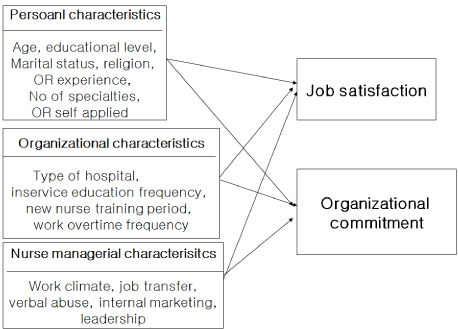1Day Surgery Center, Samsung Medical Center, Korea.
Copyright © 2010 Korean Academy of Nursing Administration

Personal characteristics of the subjects (N=500)
Reasons to choose OR to work (N=397)
Organizational characteristics (N=500)
CLS : Clinical ladder System
Descriptive statistics of nursing managerial characteristics, job satisfaction and organizational commitment
Correlation among nursing managerial characteristics, job satisfaction, organizational commitment
Differences of job satisfaction and organizational commitment level according to the personal characteristics (N=500)
Differences of job satisfaction and organizational commitment level according to the organizational characteristics (N=500)
CLS : Clinical ladder System
The factors influencing to job satisfaction and organizational commitment
CLS : Clinical ladder System
Influencing factors to job satisfaction
Influencing factors to organizational commitment
CLS : Clinical ladder System
CLS : Clinical ladder System
CLS : Clinical ladder System